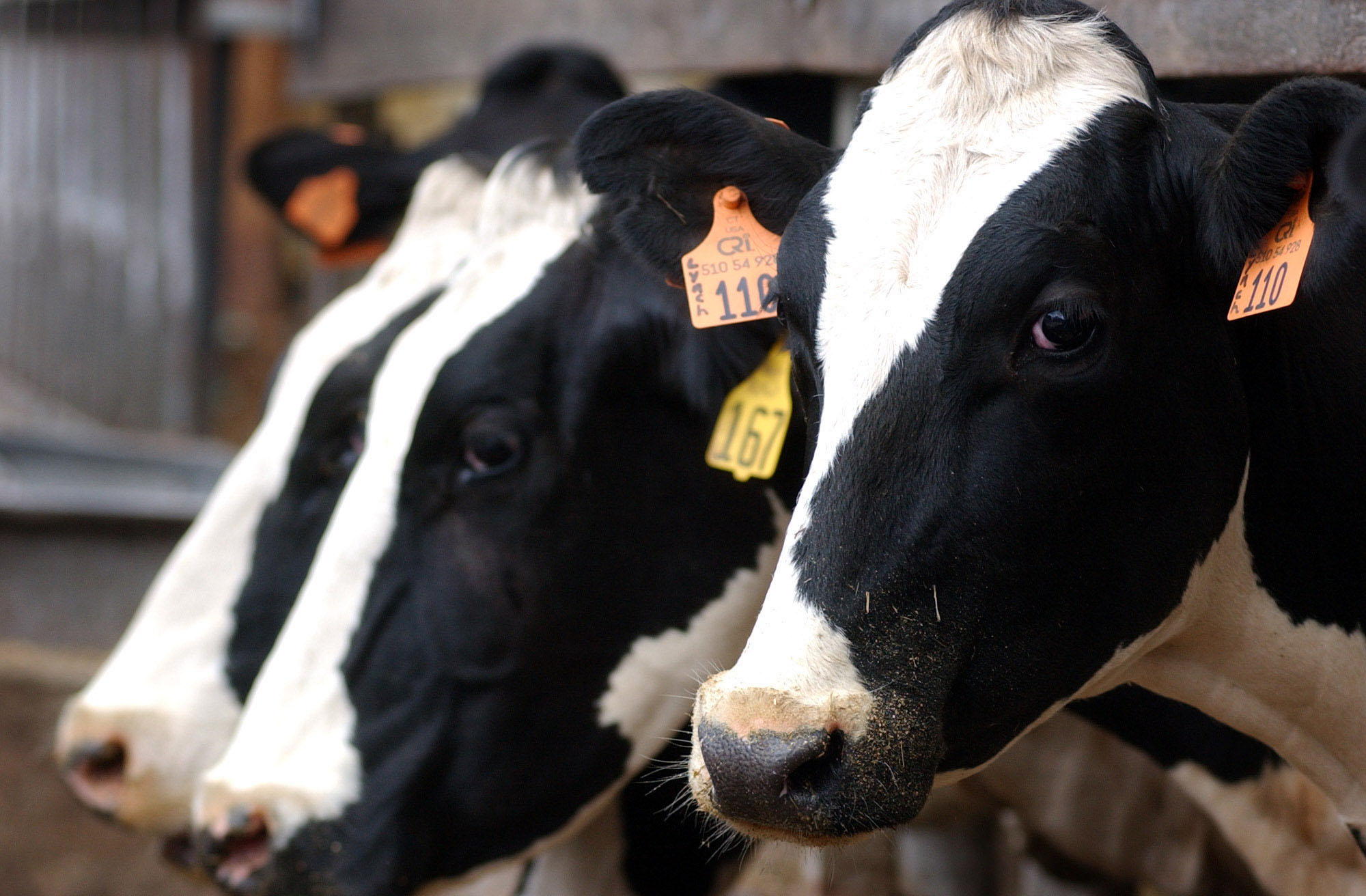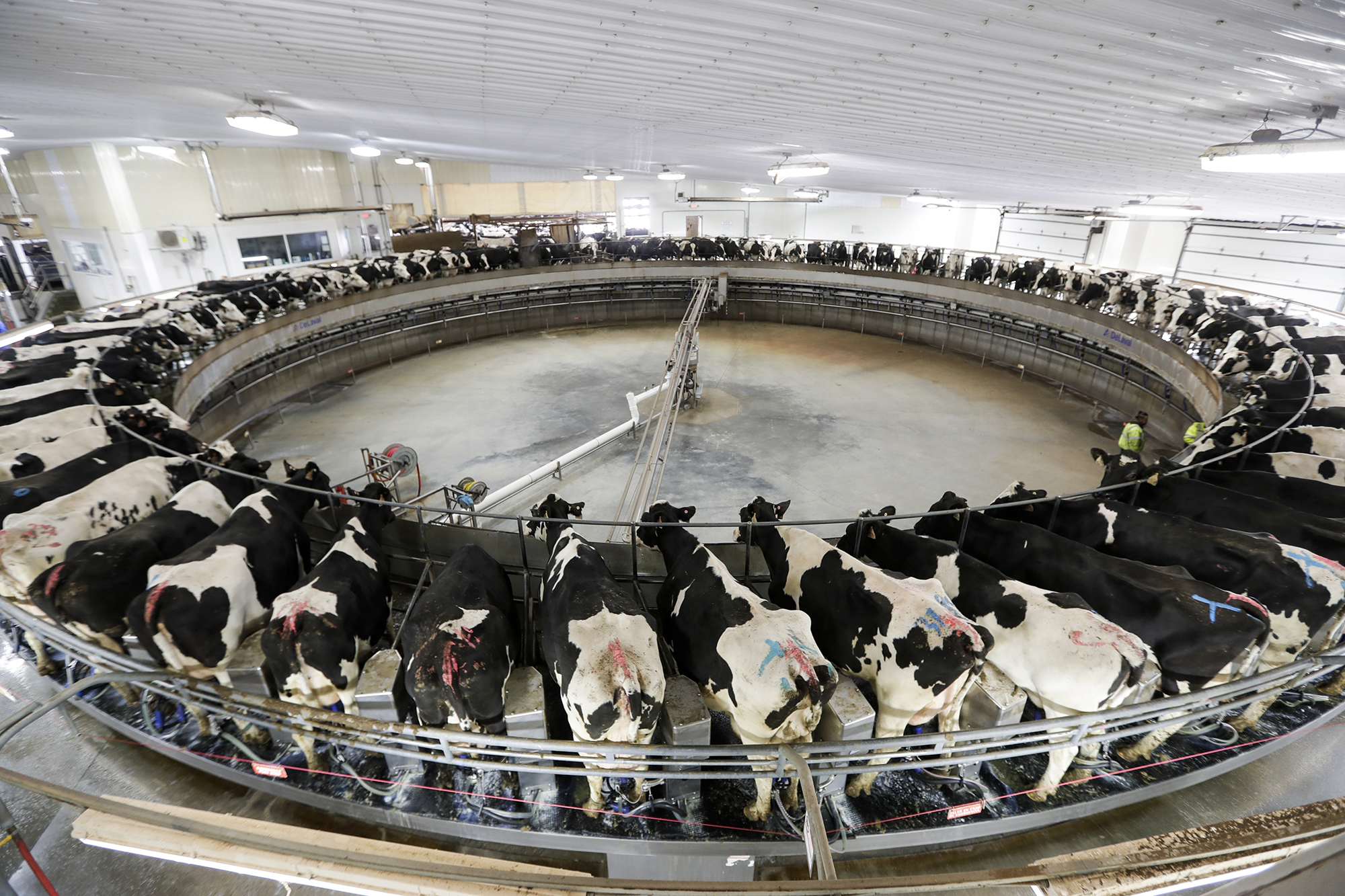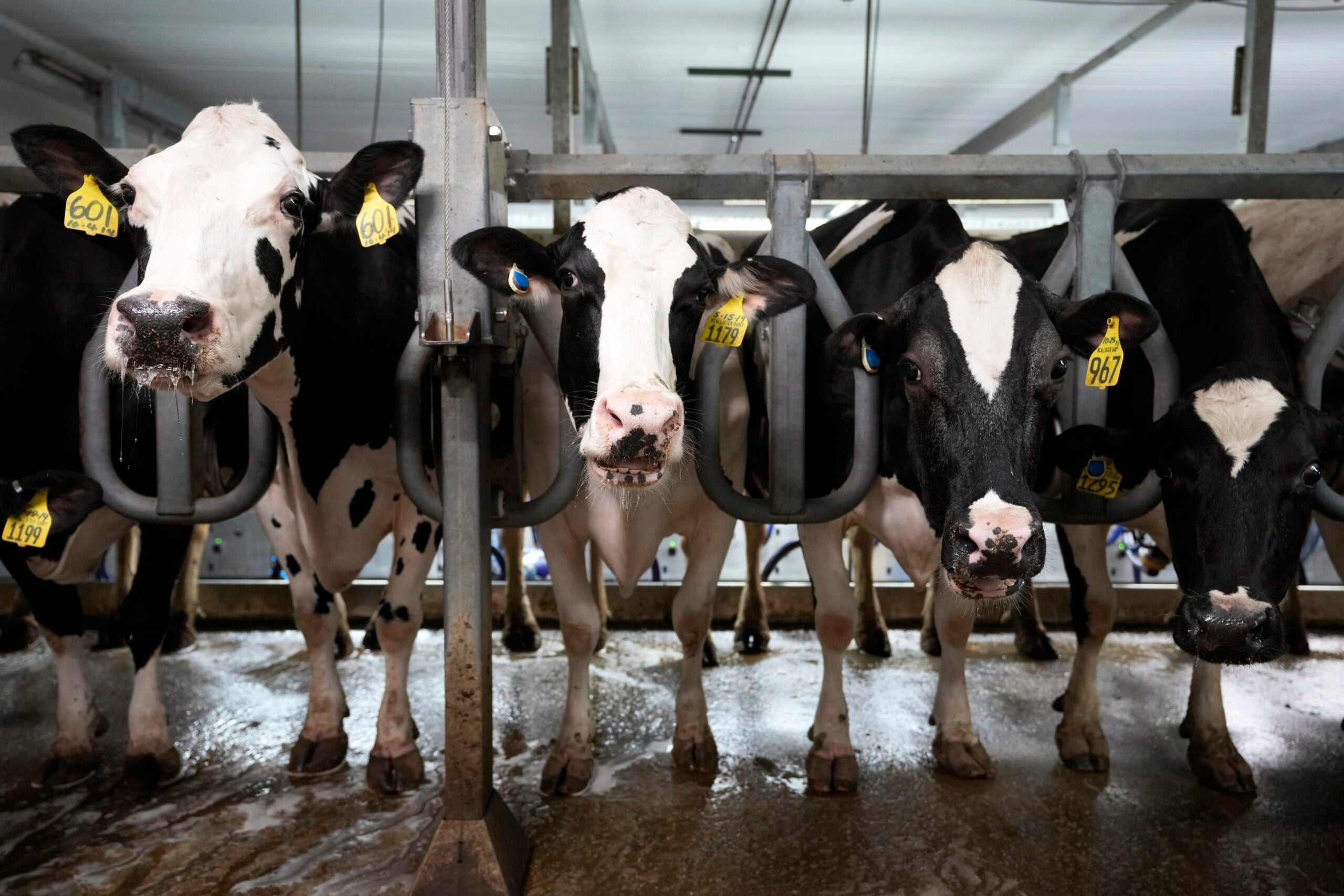State environmental regulators have signed off on a large livestock farm’s plans to expand in western Wisconsin, the project more than tripling the size of its operation.
Ridge Breeze Dairy currently runs a 1,700-cow dairy farm in Pierce County. Under the plan, it would grow to about 6,500 cows next year. The expansion would generate nearly 78 million gallons of manure and wastewater annually.
The Wisconsin Department of Natural Resources recently approved a modified permit for the concentrated animal feeding operation, or CAFO. Under the permit, the farm will add three more facilities to store manure and waste, as well as a stacking pad to store solid manure. The farm will also conduct more sampling of manure and update emergency response and inspection plans.
Opponents of the expansion point out the permit does not require groundwater monitoring. Danny Akenson, field organizer with Grassroots Organizing Western Wisconsin, said local residents have expressed concerns about potential contamination of groundwater and nearby waterways during a hearing last summer.
“In the case that they are going to be allowed to expand, groundwater monitoring is the bare minimum,” Akenson said. “It’s my opinion that they should not be allowed to expand in the first place.”
Gregg Wolf, CEO of Breeze Dairy Group, told WPR he’s pleased with the agency’s decision. He said everything was done right to grow the operation in a responsible manner.
“When looking at water quality — those type of things — it’s on our mind, too, because our cattle drink water, and we drink the water,” Wolf said. “We want to leave the aquifer just as good, if not better, than when we took over.”

DNR: Groundwater monitoring is not warranted
News with a little more humanity
WPR’s “Wisconsin Today” newsletter keeps you connected to the state you love without feeling overwhelmed. No paywall. No agenda. No corporate filter.
In the agency’s decision, the DNR said groundwater monitoring isn’t warranted because the area is less vulnerable to groundwater contamination. The agency found the depth to groundwater is roughly 200 feet or more from the surface in the farm’s production area. But the DNR also noted well construction reports show as little as 10 feet of silt or clay over fractured bedrock in some spots.
Residents have voiced concerns about nitrate contamination that can cause serious health issues and largely stems from agriculture. A 2024 county report found 14 percent of tested wells exceeded the federal drinking water standard for nitrates.
In 2021, the Wisconsin Supreme Court ruled the DNR had authority to impose groundwater monitoring requirements on large farms to protect water quality. However, some large livestock operations have sued the agency, saying groundwater monitoring is too costly.
John Danneker is a supervisor in the town of Maiden Rock, where Ridge Breeze Dairy has previously spread its manure on fields. He said the lack of groundwater monitoring is a disaster waiting to happen.
In December, the town passed a pair of ordinances that would regulate damage to roads and the operation of large livestock farms, requiring plans to address air pollution, infectious disease and disposal of dead animals.
“It’s to protect what we already have and what we’ve had,” Danneker said.
Under the permit, the DNR is requiring the farm to submit a mortality management plan, said James Salscheider, the agency’s CAFO compliance and enforcement coordinator. He said the agency required its submission after residents voiced concerns about a mass die-off of animals due to disease or a barn collapse. While farms and permits often address those concerns, he said the DNR doesn’t typically require a plan.
“But due to the number of responses or comments that we received, the department felt like it was necessary,” Salscheider said.

Akenson said residents had also expressed concerns about whether the farm had enough land to spread manure, urging the DNR to require signed contracts with landowners. The farm provided signed affidavits from growers renting land, who said they received approval from landowners. Akenson argued some landowners still lacked knowledge of the renters’ arrangement with the farm.
Wolf said they relied on growers to get approval from landowners. The DNR said Ridge Breeze Dairy has more than 7,000 acres for manure spreading, adding that the agency reviews the farm’s nutrient management plan to ensure proper application on fields.
Under the permit, the farm also has more than 240 days of manure storage, which is beyond the minimum requirement of 180 days.
Wolf said the farm is expanding and modernizing its facilities as the industry and farmers adapt to the loss of small dairy farms and technological advancements.
“To adapt to some of the new technologies, it generally takes more cows to be able to pay for it and make it financially viable,” Wolf said.
Wolf said they haven’t been given a chance to show they’re a good operator and community member. Opponents have pointed to around 200,000 gallons of manure spilled by farms owned by Breeze Dairy Group, which Wolf has said are past issues they’ve worked to address.
Akenson said the grassroots group is exploring options for a contested case hearing on the DNR’s permit to ensure that community members living nearby are protected. Wolf said the farm plans to begin construction of a barn and milking parlor this summer before adding cows next January.
Wisconsin Public Radio, © Copyright 2025, Board of Regents of the University of Wisconsin System and Wisconsin Educational Communications Board.




